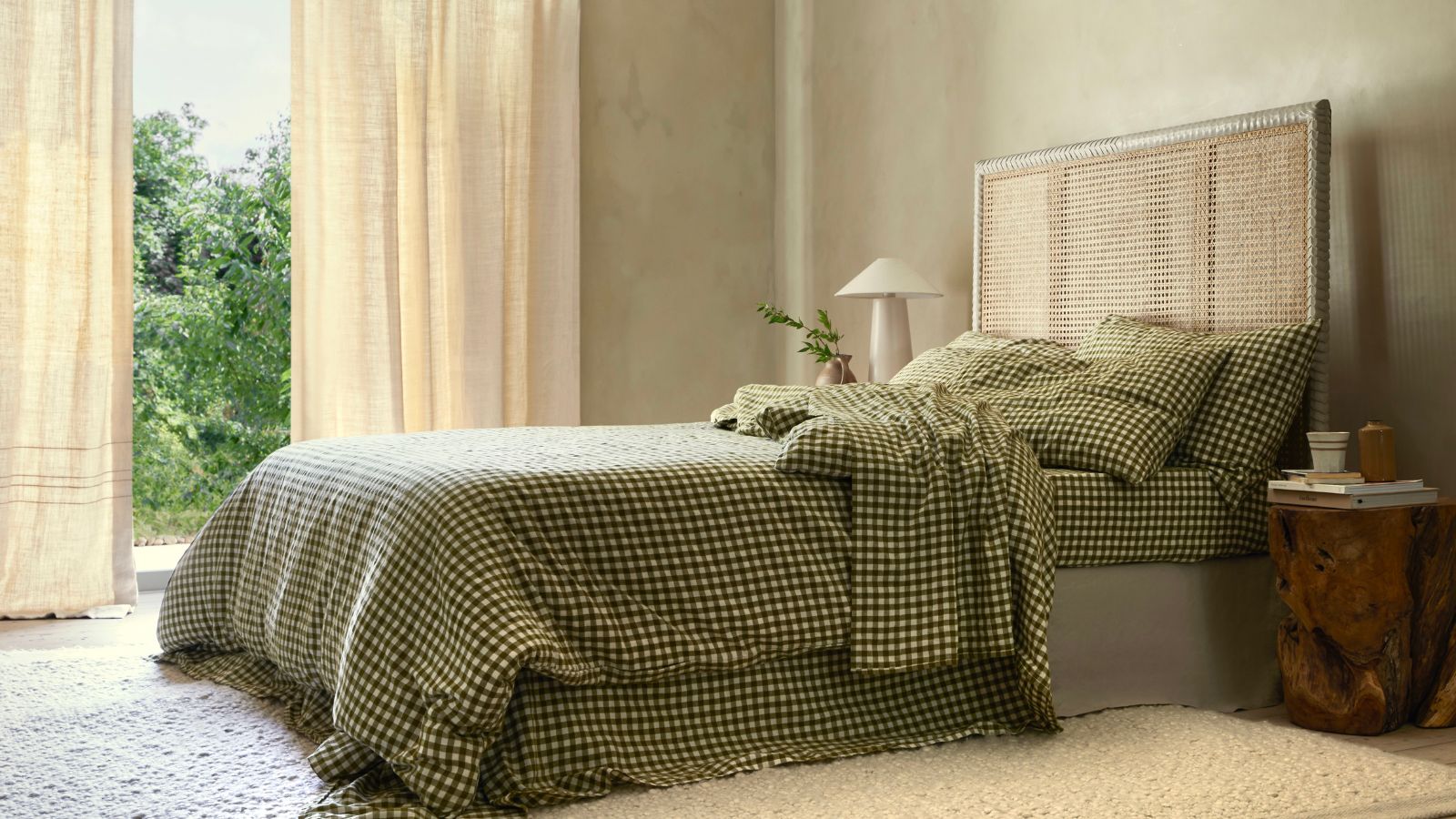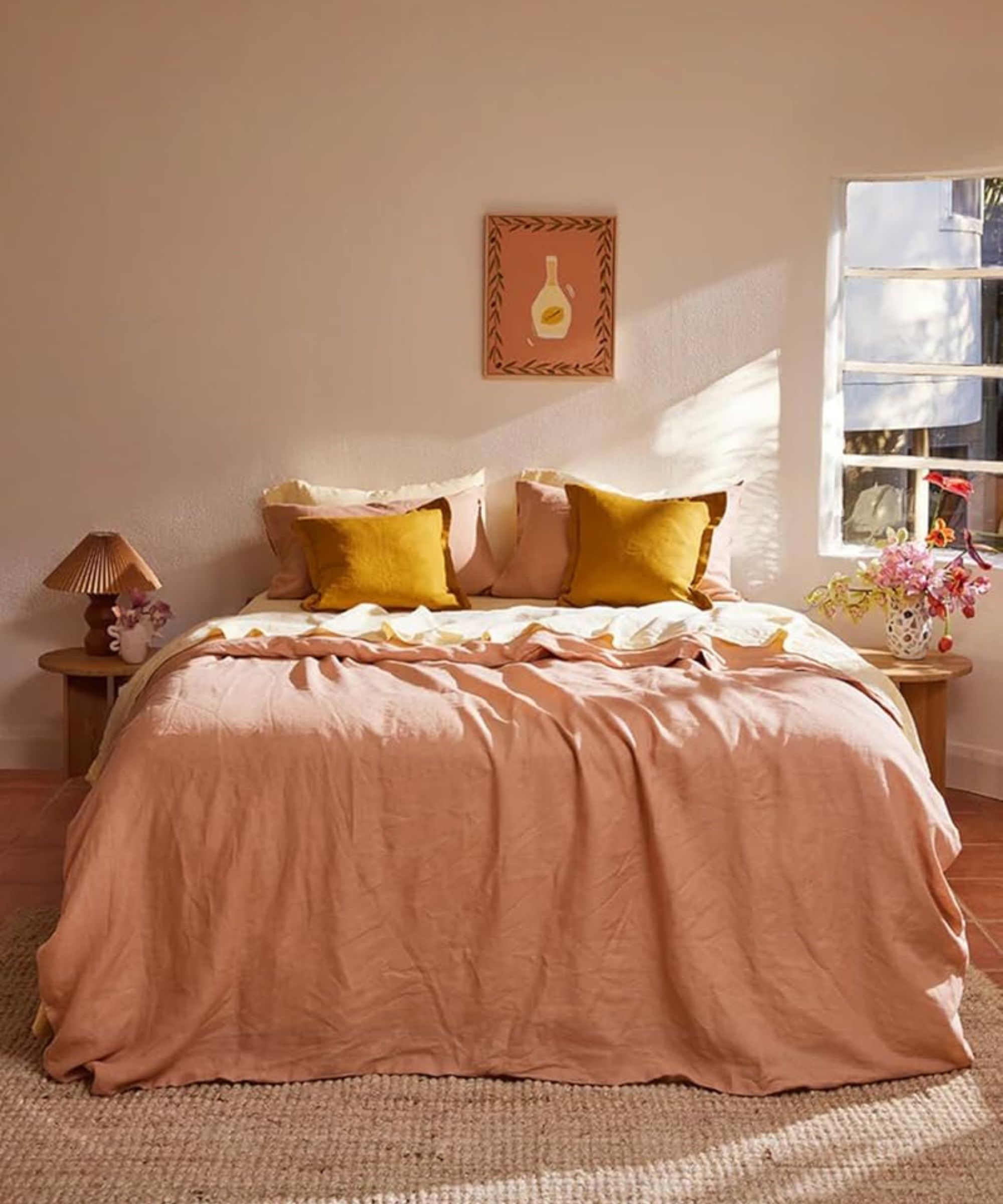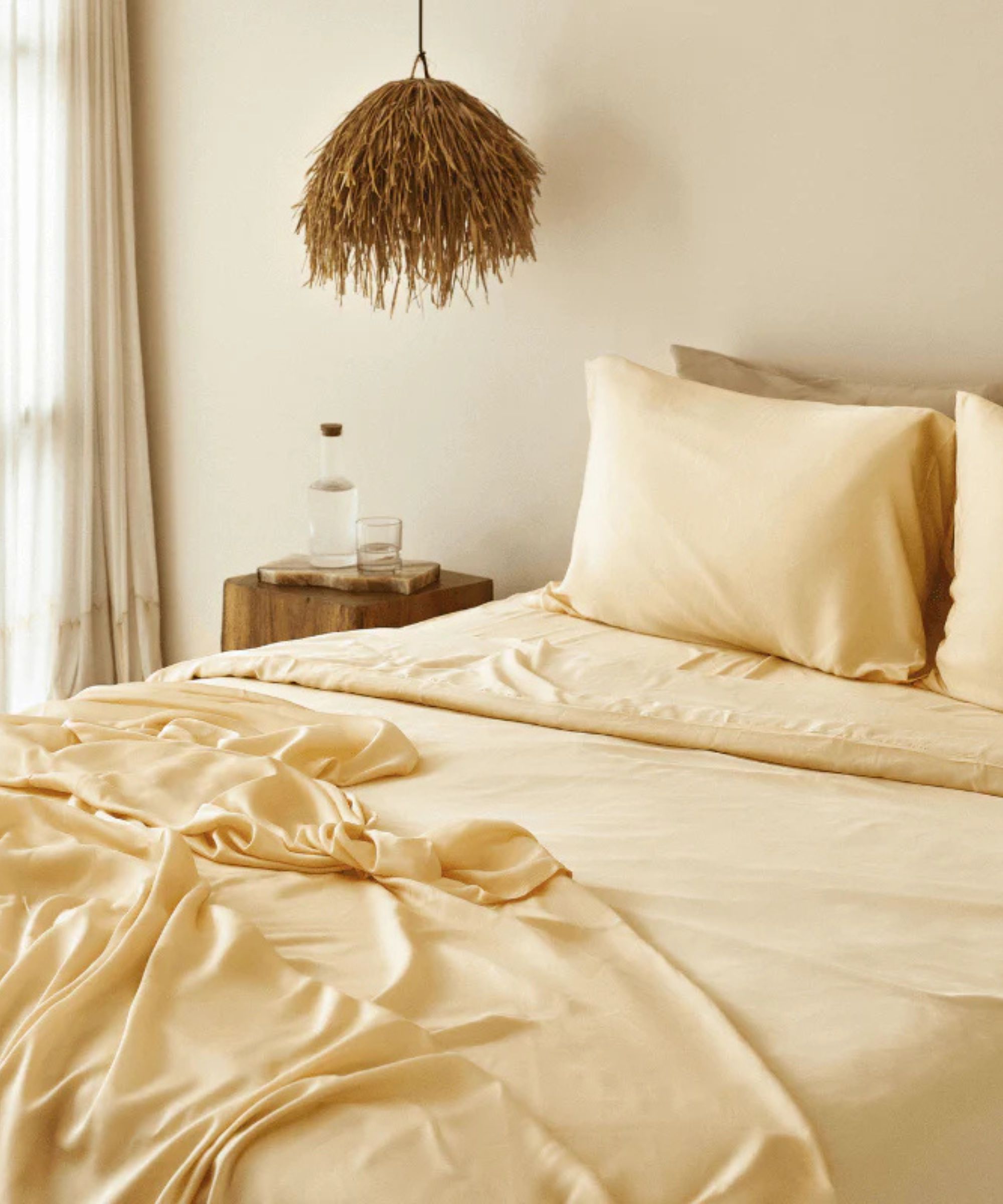Bedding sales – how to get the best deals on silky sheets, supportive pillows, and cooling comforters
Here's everything you need to know about the bedding sales, from where to shop to what to buy and how to save, according to our Sleep Editor


When you make the most of the bedding sales, you can upgrade your bed on a budget. I've found deep discounts on sheet sets, duvet inserts, and pillows from big-name brands and specialist sleep stores to suit every style of bedroom and every size of budget.
Before I specialized as a Sleep Editor, I was a price tracker. I spent eight hours a day surfing the sites of major merchants, monitoring their prices. Now, I lead a team of expert testers in the search to find the best bedding at the fairest price. With so much listed for so little, it can be difficult to know where to start.
I've spent hours sifting through thousands of bedding deals, hand-picking my favorite products to make sure you get a good deal, rather than a low price on a poor product. If you'd prefer to scroll for yourself, I've included some quick links to send you straight to the best places to buy bedding. Later on, I'll answer all your FAQs about the bedding sales.
Where to find the best bedding deals − an expert's A to Z
- Amazon: save on a whole host of brands, including Boll & Branch, Broolinen and more
- Avocado: discounts across bedding, including bundles
- Barefoot Dreams: save on cozy blankets, pillows and throws
- Bedgear: up to 60% off discounted sheets
- Bed Threads: build your own bundle for 20% less, save 50% on last chance designs
- Boll & Branch: savings on luxurious sheets, blankets and more
- Brooklinen: up to 75% off Last Call and 15% off sitewide
- Cozy Earth: Up to 45% off in Last-Chance sales
- ettitude: save on select sheet sets, blankets and more
- Piglet in Bed: up to 20% off luxury linen bedding
- Sijo: save 30% across Final Sale items
- Sleep Number: savings across temperature-balancing bedding
- The Company Store: save on quilts, sheet sets, blankets and more
- Woolroom: up to 70% off Last Chance items
When is the best time to shop for bedding deals?

Before you start shopping, it's important to acquaint yourself with two types of bedding sales: seasonal vs site-specific. There are only so many seasonal bedding sales in a year, because there are only so many public holidays, but many brands offer 'early access' and 'last call' discounts in the weeks immediately preceding and succeeding a federal holiday.
Site-specific sales could pop up at any time, but there are a few big ones that it's worth keeping an eye out for. Amazon runs two Prime Days every year, one in July and one in October, and Wayfair and Walmart follow suit with Way Day and Super Savings Week discounts throughout the year. Many bedding brands will run anniversary sales to celebrate the 'birthday' of their brand, so I suggest you bookmark your favorites.
- White sales: typically held in January, white sales slash prices on sheets, towels, and other household linens in a bid to shift stock in time for the new season.
- Presidents' Day sales: falling on the third Monday in February, Presidents' Day offers the deepest bedding discounts this side of Memorial Day. Take this opportunity to stock up on cooling bedding before the summer rush.
- Sleep Week sales: the exact dates of Sleep Week vary from one year to the next. It typically falls in the middle of March, which happens to be Sleep Month, as celebrated by the National Sleep Foundation. This is the time to shop at specialist sleep stores, rather than home retailers, who won't make so much noise for an unofficial holiday.
- Memorial Day bedding sales: falling on the last Monday in May, Memorial Day marks the unofficial start of summer. You'll see a big rush on cooling sheets, comforters, pillows, mattress toppers and protectors to weather the hot nights and heatwaves.
- Amazon Prime Day bedding sales: the exact dates of Amazon Prime Days are a closely guarded secret. Judging by previous years, you can expect one in July and one in October. Amazon stocks bedding from smaller specialist sleep stores as well as big-name brands, including Tempur-Pedic, Brooklinen, and Cozy Earth. As a general rule, discounts are deeper in July than they are in October, but prices vary from product to product.
- Back-to-school sales: this is the time to make the most of the August-September discounts at your local home retailer, where back-to-school sales are much more comprehensive. If you're looking for the best mattress topper for dorm beds, this is the best time to buy before you head off to college.
- Black Friday bedding sales: Black Friday is the best time to buy just about anything, from white goods to home tech, plus mattresses and bedding. A lot of stores open up Early Access sales at the start of November and extend them through Cyber Monday into the first week of December, so you've got plenty of time to shop for Black Friday bedding deals.
- After-Christmas bedding sales: the end of December and start of January is a great time to shop cooling bedding at out-of-season prices. You might not get such a good deal on cozy comforters and blankets though, which are in higher demand then.
How can I get the best bedding deals?

Stop and consider your sleep style
You should never buy something just because it's on sale. You aren't saving money on a winter-weather sheet set if you run hot and live in a desert state. Before you buy, I'd encourage you to stop and consider your sleep needs.
Which bed sheet types are best for you depends on whether you prefer a matte or silky texture, as well as whether you run hot or cool and whether you have any allergies. Similar decisions dictate whether you should opt for down or down alternative duvet inserts, although it's worth noting that down has better natural loft.
Your preferred pillow type is largely dependent on your sleep position: whether you lie on your front, back, or side. As a general rule, side sleepers need a thicker pillow to slot into the gap between their head and shoulders to support their neck, while back and stomach sleepers benefit from something flatter to stop their neck from straining.
Make the most of bundle deals
If you're looking to refresh your bedroom ideas, then you could save hundreds of dollars by building a bundle. I built my own bedding bundle with Piglet in Bed and it's still in regular rotation in my home. I got to personalize the colors, prints, and patterns of each sheet, opting in and out of duvet covers and spare pillowcases as I saw fit.
On the other hand, if you're only shopping for one specific item, then you shouldn't be duped into spending more on unnecessary bundle items. You can do without the sheet set when you purchase your next pillow.
Scour the specifications
It's the quickest way to spot the difference between a good deal and a low price on a poor product. You're looking for authentication from independent bodies that this bedding bundle is really worth the money: a badge from the Cotton Egypt Association to certify Egyptian cotton, for example, or insignia from OEKO-TEX to prove that textiles are free from certain harmful substances.
FAQs
What is a good price for bedding?
As H&G's resident sleep writer, I'm often asked: 'how much should I spend on sheets?' My golden rule is somewhere between $50 - $200 for a Queen. That should be enough to weed out the cheap fabrics and fills in favor of more sustainable materials. My advice: always check the care tag and scour the specifications to make sure you know where your money is going.
If you're tight on time and money, and you need new bedding at a cut price, your best bet is a set of the best affordable bed sheets. Bedding bundles from big-name brands, such as Saatva and Sijo, deliver premium performance without the premium price tag.
How much you should spend on a pillow depends on the fill type. As a general rule, down is more expensive than down alternative, because it's harder to source. Where a down pillow might cost $100 in a standard size, a microfiber pillow could cost $50, although a natural latex or organic wool pillow could cost more like $150.
It's a similar story for duvet inserts and comforters: down tends to be more expensive than down alternatives. Also, the thicker the insert, the more expensive it's likely to be. The best warm comforter costs several hundred dollars more than the best cooling comforter, because it contains far more fill.
Are there any hidden costs when buying bedding?
Yes. Before you carried away by a low listing price, remember to factor in the costs of delivery. Take a good look at the return policies, too: many of the best places to buy affordable bedding offer short return windows, 30 days or less, while some specialist sleep stores will only process returns for an additional fee.
If you're looking for deep discounts on toppers and protectors, you've come to the wrong place. You'll find those in my monthly mattress sales round-up.
Design expertise in your inbox – from inspiring decorating ideas and beautiful celebrity homes to practical gardening advice and shopping round-ups.

Emilia is our resident sleep writer. She spends her days tracking down the lowest prices on the best mattresses and bedding and spends her nights testing them out from the comfort of her own home. Emilia leads a team of testers across America to find the best mattress for every sleep style, body type, and budget.
Emilia's quest to learn how to sleep better takes her all around the world, from the 3Z mattress factory in Glendale, Arizona to the Hästens headquarters in Köping, Sweden. She's interviewed luxury bedding designers at Shleep and Pure Parima, as well as the Design Manager at IKEA. Before she joined Homes & Gardens, Emilia studied English at the University of Oxford.